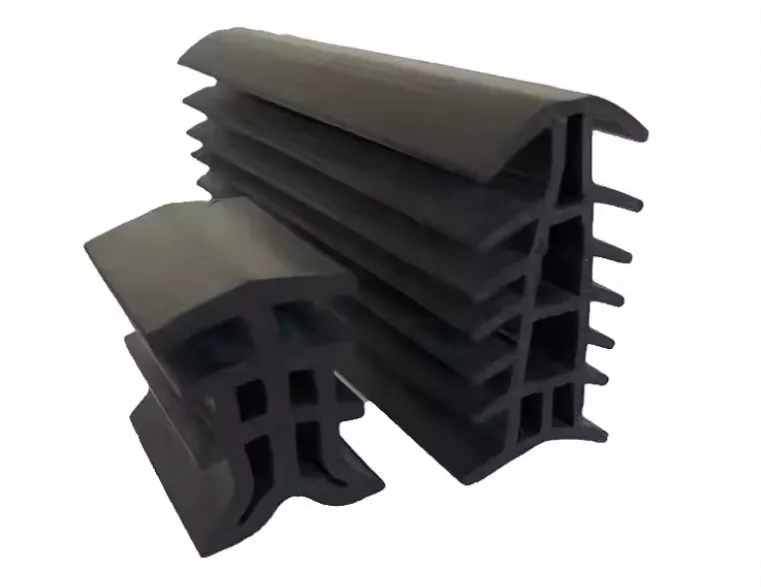Manufacturer of Rubber Seals for Refrigerator Doors and Their Importance in Energy Efficiency
The Importance of Rubber Seals in Refrigerators A Focus on Manufacturing
When it comes to the efficiency and functionality of refrigerators, one often overlooked component plays a pivotal role the rubber seal. Commonly found around refrigerator doors, these seals are critical to the appliance's ability to maintain optimal internal temperatures while minimizing energy consumption. This article explores the significance of rubber seals, their manufacturing processes, and the various factors to consider when selecting a manufacturer.
Understanding Rubber Seals
Rubber seals, also known as gaskets, are designed to provide an airtight barrier between the refrigerator door and the main body of the appliance. This barrier ensures that cold air stays inside while preventing warm air from seeping in. Over time, the effectiveness of these seals can deteriorate due to wear and tear, leading to energy loss and higher electricity bills. In addition, faulty seals can compromise food safety by not keeping the internal environment at the required temperatures.
The Manufacturing Process
The manufacturing of rubber seals involves several critical steps to ensure that the final product meets the necessary quality and performance standards. Initially, raw rubber is sourced and prepared to meet specific formulations that are suitable for refrigeration environments. Key characteristics of the rubber used include high elasticity, resistance to temperature fluctuations, and durability against wear and tear.
1. Molding The rubber is then molded into the desired shape, typically using either compression or injection molding techniques. Compression molding is often used for simpler shapes, while injection molding is preferred for more complex designs. During this stage, precision is crucial to ensure a snug fit that will effectively seal the refrigerator door.
2. Curing After molding, the rubber undergoes a curing process—also known as vulcanization—where heat and pressure are applied to enhance its strength and elasticity. This step is essential as it determines the longevity and resilience of the seal.
3. Quality Control The finished seals are subjected to rigorous quality control tests to ensure they meet industry standards. This includes checking for airtightness, flexibility, and resistance to extreme temperatures. Any seals that do not meet these standards are rejected and reprocessed or discarded.
rubber seal inside refrigerator door manufacturer

Choosing the Right Manufacturer
Selecting a reliable manufacturer for rubber seals is critical for ensuring quality and performance. Here are several factors to consider
- Experience Choose a manufacturer with a proven track record in producing rubber seals for refrigerators. Their experience can contribute to a better understanding of industry standards and customer requirements.
- Materials Used Inquire about the types of rubber materials used in the manufacturing process. High-quality, food-safe, and temperature-resistant materials are vital for ensuring the longevity of the seals.
- Customization Depending on the specific needs of your refrigerator model, customization may be necessary. A good manufacturer should offer custom solutions that can accommodate various designs and specifications.
- Certifications Look for manufacturers that hold relevant certifications such as ISO 9001. These certifications indicate a commitment to quality and consistent production processes.
- Customer Support Effective communication and support from the manufacturer can significantly enhance the purchasing experience. A reliable manufacturer should be responsive to inquiries and provide assistance as needed.
Conclusion
In summary, rubber seals play an essential role in the functionality and energy efficiency of refrigerators. Their manufacturing process is intricate and requires attention to detail to produce high-quality products. When considering a manufacturer for rubber seals, it is vital to prioritize experience, material quality, customization options, certifications, and customer support. By taking these factors into account, manufacturers and consumers alike can ensure they are equipped with seals that not only enhance the performance of their refrigerators but also contribute to energy savings and food safety in the long run.
Share
-
The Best Lubricants for Aluminum Roller GuidesNewsJul.23,2025
-
Slitting Machine Applications in the Packaging IndustryNewsJul.23,2025
-
Rolling Roller Balancing Techniques for Smooth OperationNewsJul.23,2025
-
How To Optimize An EV Battery Assembly LineNewsJul.23,2025
-
Energy Efficiency in Modern Battery Formation EquipmentNewsJul.23,2025
-
Automation Trends in Pouch Cell Assembly EquipmentNewsJul.23,2025







